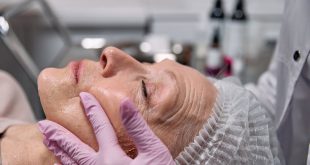Whether it’s enjoying a cold glass of wine in the summer with friends or raising a toast to celebrate a special occasion, many women enjoy alcohol and make it a regular part of their social landscape. This is a perfectly normal and accepted way of life that is likely to change anytime soon. However, it’s important to understand just how that indulgence affects your body, especially, if it’s a regular occurrence.
When enjoyed in moderation alongside a healthy, balanced lifestyle, alcohol poses a small threat to our health. Of course, this also depends on your general health, underlying conditions, and genetics. On a more extreme note, excessive drinkers run a larger risk of experiencing an array of health problems, some of which may surprise you. Here are some negative effects of alcohol on your body.
Poor Sleep
We know enough about sleep to conclude that getting enough quality rest is important to overall health. Getting an adequate amount of sleep each night allows our brains to essentially reset and allows us to process everything that we may have learned or experienced within that day. Drinking excessively can interfere with this process and by revving up the body’s metabolic system to rid itself of the toxins in the alcohol. Additionally, even a glass or two of alcohol can cause you to miss out on the important first stage of sleep, meaning you sleep lighter and can wake up feeling exhausted.
Hinders Brain Function
Multiple studies have revealed how frequent drinking can change the structure of our brain by shrinking brain cells and damaging the connections between them. We know that alcohol depresses the central nervous system and inhibits normal brain activity. This downgrading of brain activity causes a range of effects such as impaired body movements and slurred speech.
While these are familiar short-term effects of alcohol that everyone experiences, over time, sustained alcohol exposure can cause long-term damage to nerve cells, compromise memory, and even cause increased anxiety levels.
Hearing Loss
As our hearing health is closely connected to our brain health, alcohol can, in some cases, affect hearing in ways that we may not immediately realize. More specifically, drinking too much over a long period of time can damage the area of our brains that processes sound and cause short-term issues such as unpleasant ringing sensations.
It can also cause long-term issues such as a hearing impairment which could require treatment such as therapy and a hearing aid fitting. Alcohol is also found to affect the composition and amount of fluid in our inner ears, which can also cause temporary hearing loss or prolonged bouts of dizziness.
Compromised Immune System
Our immune system is our body’s major safeguard against infection, illness, and disease. Without a strong one, we are vulnerable to harmful bacteria, viruses, and toxins that could cause systemic damage or even death. Binge drinking cannot be metabolized by the body fast enough, and so suppresses the natural ability of our immune system. This is because excessive alcohol consumption reduces the production of white blood cells, slows down digestive activity, and overloads the liver.
Needed vitamins and minerals cannot be sufficiently stored in the body. If you notice you’re more susceptible to bacterial and viral infections, or you can’t seem to shake them like you used to, it could be your body’s way of telling you to cut down on your drinking habits.
Skin Problems
Alcohol use doesn’t just affect us inside but also our physical appearance. In order to stay healthy and supple, our skin needs proper hydration. Unfortunately, drinking alcohol does the opposite by dehydrating our cells. This makes our skin prone to dryness, puffy under-eyes, and increased upper facial wrinkles.
The sugar and acids found in alcohol are also known to disrupt the gut microbiome, which can cause skin issues like acne, eczema, and rashes. Other more serious skin complications as a result of excessive drinking can include general itching, sensitivity to sunlight, scalp rash, rosacea, or even jaundice.
Weight Gain
It’s a fact that most alcoholic drinks contain a lot of calories. With 7 calories a gram, excessive alcohol consumption can add up and cause rapid weight gain, regardless of the type of beverage. Similarly to excessive eating, drinking too much alcohol can lead to several damaging physical conditions, such as insulin resistance, diabetes, or liver toxicity.
Alongside a surplus of calories, alcohol is also known to promote your appetite levels which can cause you to eat impulsively and in larger amounts than normal. Because alcohol consumption encourages an imbalance of bacteria in the gut and affects the functioning of our liver, bloating, stomach ulcers, and indigestion can also be commonly experienced among those who regularly use alcohol.
**** This post is strictly informational and is not meant to replace the advice of your healthcare provider. Women’s lifelink, it’s owners, administrators, contributors, affiliates, vendors, authors, and editors do not claim that this information will diagnose, treat, or improve any condition or disease.
 Women's Life Link Be Well, Be Happy, Be YOU!
Women's Life Link Be Well, Be Happy, Be YOU!






